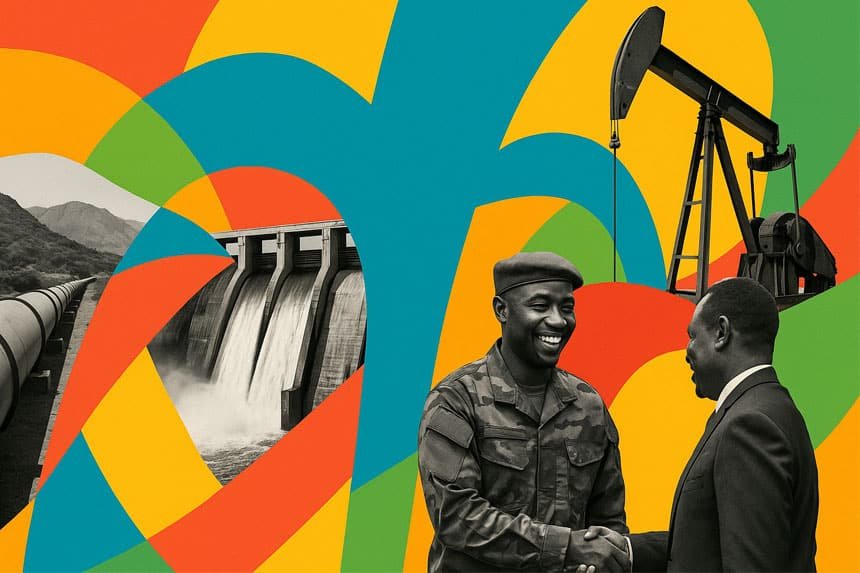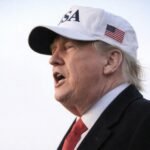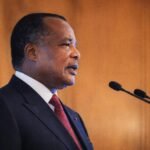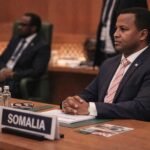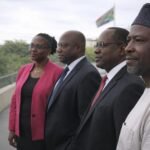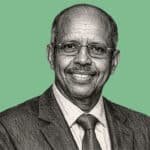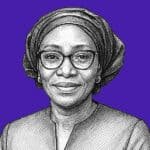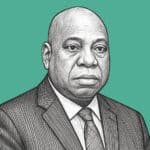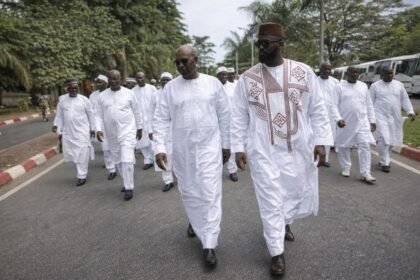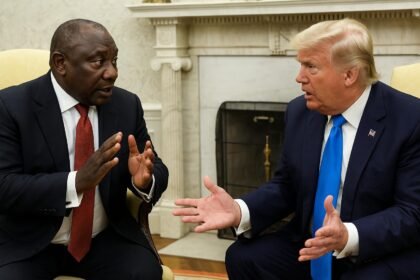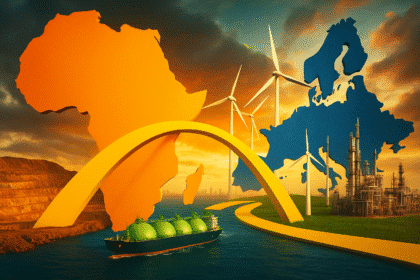Unprecedented financing for the EACOP megaproject
On 26 March 2025, EACOP Ltd announced the closing of the first external financing tranche for the cross-border Hoima–Tanga pipeline, syndicated by Afreximbank, Standard Bank, KCB Bank Uganda and the private arm of the Islamic Development Bank. The transaction secures the USD 5 billion budget for a project in which TotalEnergies holds a 62 percent stake. Six days later, the company reported that the 1 443-kilometre route had reached 60 percent completion and generated 6 000 jobs—70 percent filled by locals—foreshadowing a petroleum and digital corridor thanks to the fibre-optic cable embedded in the conduit. Updated in early June, the “Acting Transparently” portal details land compensations and community-monitoring mechanisms, an exercise in transparency diplomacy aimed at defusing social and climate tensions.
Hydropower diversification and energy diplomacy
Alongside its oil push, the group on 28 February 2025 finalised a USD 167 million acquisition of Scatec ASA’s hydropower assets in the Great Lakes region, including Uganda’s 255 MW Bujagali dam and the Mpatamanga (Malawi) and Ruzizi III (Rwanda-DRC-Burundi) projects. The transfer of the Hydro Africa team to the new entity SN Power AS reinforces the low-carbon aspirations championed by Paris at COP 28. Favoured by donors keen to balance their power mix and secure supply, this expansion also underpins the “shared-value creator” posture extolled by Chief Executive Patrick Pouyanné, who stressed that “such projects are better executed by a responsible major than by less scrupulous operators”.
Withdrawal from Burkina Faso: curtain-call for a Sahelian era
Less than three months after divesting its Malian subsidiary, TotalEnergies on 18 February 2025 completed the sale of its 67 service stations and depots in Burkina Faso to Idrissa Nassa’s Coris Investment Group. Regional manager Badara Mbacké framed the transaction as part of the group’s “African portfolio optimisation” amid diplomatic rifts between Sahelian regimes and France. The exit, which preserves 1 109 jobs and hands the network to a domestic actor, illustrates prudent capital allocation in states where site and personnel security weighs heavily on investment decisions.
Governance and international perception
Rapid progress on EACOP has not silenced all concerns. On 23 May 2025, UN Special Rapporteur Michel Forst urged TotalEnergies to commission an independent audit into alleged intimidation of environmental defenders along the route. The group reiterated its “zero-tolerance for any form of violence” and said it was working closely with authorities to uphold due process. Financially, German asset manager Union Investment’s decision to drop the stock from its sustainable portfolios heightens due-diligence pressure, which TotalEnergies plans to address through an impact report due before year-end.
In a single quarter, TotalEnergies has secured funding for the world’s longest heated pipeline, consolidated a pan-African hydropower portfolio of 822 MW and methodically reduced exposure to the Sahel’s most volatile markets. This sequence, both industrial and diplomatic, embodies a “pendulum” strategy between lucrative hydrocarbons and green electrons, while allowing orderly exits where political risk intensifies. For African chancelleries the message is unmistakable: the major remains a strategic partner insofar as the security and regulatory architecture supports shared development aligned with international standards.
